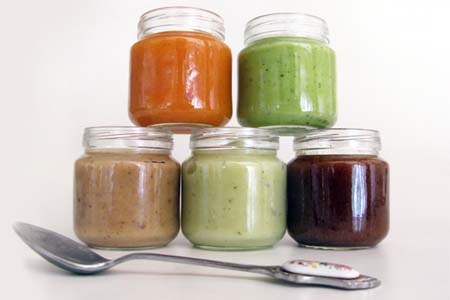Five Scientific Studies That Show Love Really is A Wonder Drug
Whatever you think about Valentine’s Day, studies suggest love is good for us – from boosting our immune systems to calming our heart rate.
Love releases feel-good hormones That ‘giddy high’ in the first stages of a relationship is familiar to most of us. And some psychiatrists even liken this feeling to the effects of a drug. But Chaka Khan was right – love really could ‘lift you up’. A study at Stanford University in 2010, catchily titled Viewing Pictures Of A Romantic Partner Reduces Experimental Pain, found that when participants looked at photos of people they loved deeply, they had higher levels of dopamine (the brain’s feel-good chemical). ‘When someone is in love, the brain releases endorphins, which give people a sense of euphoria,’ says neuropsychologist Dr David Lewis, author of Impulse: Why We Do What We Do Without Knowing Why We Do It (Random House). ‘Dopamine is associated with optimism, energy and a sense of wellbeing. Because you feel good about yourself and are optimistic, then you are less likely to do things which are self-destructive like drinking too much or smoking. Being in love almost acts as a protection against the bad things in life.’ He adds that the word ‘health’ is about a sense of wholeness. ‘It’s a state of physical, mental and social wellbeing. When you feel whole, you feel better able to tackle the challenges and stresses the world throws at you. If your sense of wellbeing is damaged then you’ll find life much more challenging.’
Hugs could ward off depression Love comes in all shapes and sizes but a simple hug from someone you care about could be enough to lift your mood. There is a clinical trial underway at the University of California, San Diego, by Dr Kai MacDonald, to study whether oxytocin – the brain hormone released by touches, hugs or when a mother bonds with her baby – might help patients with depression. The San Diego research involves looking at whether there are any genetic factors that predispose people to having more or less oxytocin. Subjects are tested before and after they are hugged by people they love to see whether the levels of oxytocin in the blood have risen. Relationships make you live longer ‘Marriage and other forms of partnership can be placed along a sliding scale of commitment, with greater commitment referring to greater health benefits,’ says Dr John Gallacher, one of the authors of a report by Cardiff University in 2011, which asked: ‘Are relationships good for your health?’ ‘The bottom line is that mortality risk is reduced if you are married,’ says Gallacher. Their research found that, overall, there were both mental and physical health impacts to being in committed relationships. In particular, one study looking into social relationships and mortality risk found that being married can help you live longer. The authors found that ‘physical and mental health benefits seem to accrue over time’ and concluded that ‘stable, long-term, exclusive relationships’ lead to ‘more healthy lifestyles and better emotional and physical health’.
Bad relationships make you ill Being in a bad relationship can weaken your immune system and slow your healing process, according to studies by researchers at Ohio State University in 2005. Husband-and-wife team Dr Janice Kiecolt-Glaser and Dr Ronald Glaser spent three decades researching how stress affects immunity. They found that harsh arguments between married people were linked to a weakening of their immune responses indicated by inflammation. If a relationship is routinely hostile, it can delay healing, they report. ‘Chronic inflammation is linked to so many conditions, among them coronary heart disease, Type 2 diabetes, arthritis and Alzheimer’s disease, as well as the frailty and functional decline that can accompany ageing,’ says Kiecolt-Glaser. In a 2005 study, participants were fitted with a suction device that created a tiny blister on their arm. ‘Each spouse was asked to talk about an area of disagreement,’ she says. ‘Wounds on the hostile couples healed at only 60 per cent of the rate of couples considered to have low levels of hostility.’ Love can help lower stress If you’ve ever felt your heart pounding when another work assignment is added to your list, just thinking about a loved one might be enough to lower your stress levels. ‘Heart rate variability (HRV), measures the time gap between your heart beats,’ says Jay Brewer, head of physiology at Nuffield Health. ‘The variation in heart beats can tell us how the body is responding to stresses such as traffic jams, deadlines and even good stimuli such as exercise. A certain level of stress is good as it stimulates us to optimal alertness. However, constant stress can have a detrimental impact on the body and mind.’ According to Brewer, research suggests that when we’re stressed, our heart beats are metronomic, like the ticking of a clock. But when we’re relaxed, heart beats can be more erratic, like a CD skipping (though he says both are extreme examples). A study published in the American Journal of Cardiology in 1995 found that focusing on positive thoughts such as appreciation and love for an object, place or person instantly increases HRV. ‘Feelings of anger, even briefly, reversed this,’ says Brewer. Brewer says high HRV reduces blood pressure and improves the immune system and digestion. ‘Low levels of HRV result in higher levels of adrenalin and cortisol, gearing us up for a fight-or-flight response,’ says Brewer. ‘It encourages us to crave sugar and fatty foods, sleep less and store weight around our abdomen. In short bouts, these hormones are beneficial but if they remain high, they disrupt blood sugar, energy levels, mental focus and mood.’ He adds that the scenarios in the study took only five minutes to have a positive influence. ‘So you can imagine the huge impact over a longer period of time,’ he says.
Retrieved From: http://metro.co.uk/2014/02/13/five-scientific-studies-that-show-love-really-is-a-wonder-drug-4301331/
|
|



















